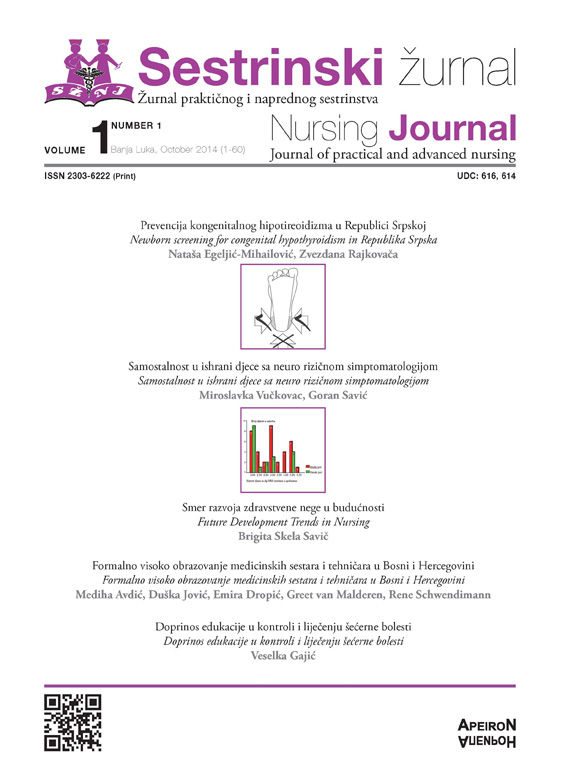Importance of educating patients in the control and treatment of diabetes / Značaj edukacije oboljelih u kontroli i liječenju dijabetesa
DOI:
https://doi.org/10.7251/SEZ0114039LAbstract
Unregulated diabetes has resulted in a large number of disabilities caused by damage to the eyes, kidneys, feet, and heart. In this regard, it is important to control diabetes, achieved good education.
Education is a continuous process that improves the quality of life of patients.
It involves a change of lifestyle.
Overall training program about living with diabetes is conducted during a five-day stay at the clinic in groups of 6 participants.
The goal: psychological adaptation and acceptance of the disease. One of the goals is to increase patients’autonomy in controlling their disease, and the prevention and delay of the occurrence of chronic complications.
Set goals together patients and those educators (nurse, doctor and psychologist).
The task of educators is that the guidelines to patients, and patients that these guidelines are applied in life.
During group education, people gain a sense of belonging to a group of people who have similar or the same problems.
This reduces the sense of psychological tension and contributes to relaxation and better concentration. In preparing the group takes into account that students have roughly the same interests and education, and that there is an age difference.
Program of education should include all the basic information about diabetes, its treatment, nutrition, acute and chronic complications, self-control and physical activity.
For the successful implementation of education, we need qualified educators, the necessary resources and materials.

